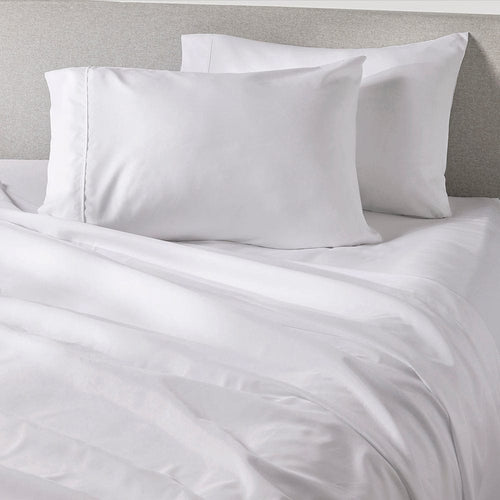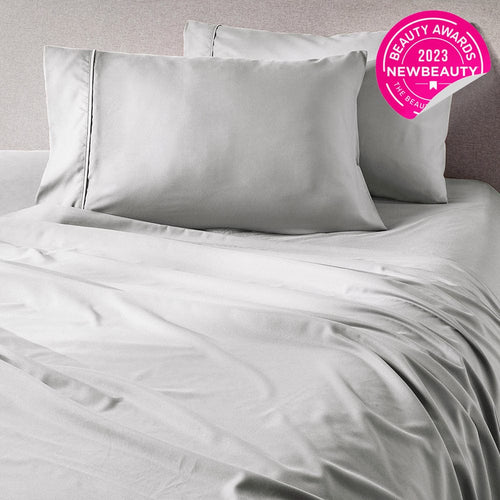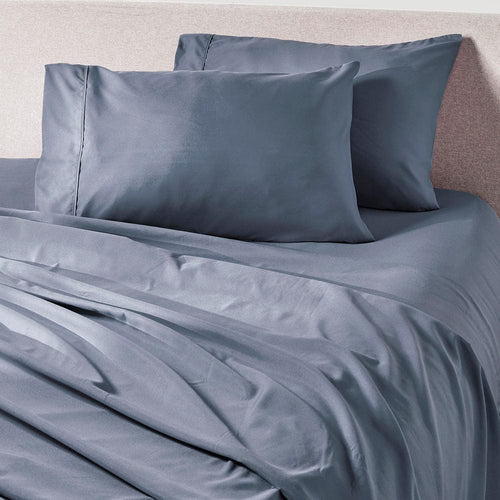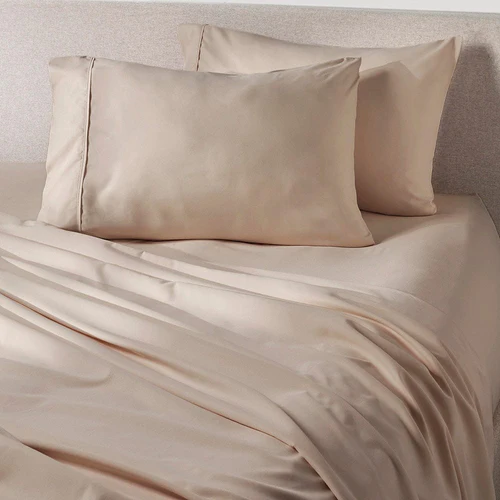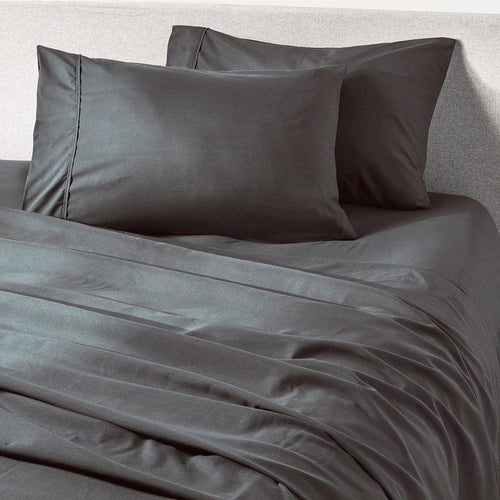
The Link Between Sweating, Dehydration, and Night Sweats
Night sweats are a common problem that affect both men and women and have a number of causes ranging from too many covers on the bed to certain medical conditions. While it is nothing more than a nuisance for many people, excessive sweating is something that should not be ignored. There is a strong link between sweating and dehydration, which can lead to health problems.
Night sweats, also known as “nocturnal hyperhidrosis,” can cause you to soak your clothing and sheets, waking in a clammy, wet mess. It is uncomfortable to say the least, and if you are co-sleeping, can be uncomfortable for your partner as well.
There are some products available that can help with excessive sweating at night. Special pillows and sheets can prevent you from getting too warm, thus reducing the amount that you perspire. Effective cooling sheets are breathable and effectively wick away moisture so that you can stay dry while getting a good night’s sleep.
It is important to note, though, that cooling sheets don’t cure night sweats in most cases because it is usually a physiological issue as opposed to an environmental one. Cooling sheets will make the situation more comfortable by keeping your sheets dry, but it won’t cure the root problem, which is whatever is causing your night sweats.
SWEATING AND DEHYDRATION: HOW IT WORKS
Sweating is the body’s natural response to high core temperatures. It is how the body cools down when it exceeds a specific core temperature threshold known as the thermos-neutral zone (TNZ). A raised TNZ can be caused by exercise, certain medications, wearing too many clothes, and certain medical conditions. It is a natural way for the body to cool down, get rid of toxins, and cleanse the pores. Sweating is useful, but excessive sweating can cause dehydration, which can lead to problems.
When you are dehydrated, your body cannot sweat, so it is deprived of its benefits. In extreme cases, the inability to sweat can lead to heat stroke and other serious issues. Dehydration also comes with its own set of problems. Your body needs adequate fluids in order to function properly. When you aren’t properly hydrated, it can cause headaches, migraine, weakness, fatigue, and, if not treated, organ failure.
Excessive sweating can cause dehydration because you are losing fluid more rapidly than you are replacing it. By the same token, if you are even a little dehydrated, you won’t sweat as much. Most people go through stages of dehydration throughout the day if they aren’t drinking water regularly. So, if you go to bed while you are partially dehydrated, you will likely perspire less. If you are well hydrated, you will probably perspire more. That is why you may find your night sweats are worse on some nights than on others.
UNDERSTANDING NIGHT SWEATS
The TNZ fluctuates naturally during sleep. Most people usually experience cooler body temperatures that gradually decrease throughout the night, hitting the coolest temperature a few hours before their natural wake time. Night sweats occur when your TNZ increases to the point where you perspire while sleeping. When this occurs for physiological reasons, it is considered to be a medical condition and is graded by how it affects you:
- Mild – You notice it, but it does not necessarily disturb your sleep and does not require you to change clothes.
- Moderate – Your sleep is disturbed because you have to get up to wash your face and/or body, but you don’t have to change your clothing.
- Severe – Your sleep is disturbed, and you have to change your clothing and/or bedding.
There are a number of causes of night sweats. If you experience it on a regular basis or if you suddenly begin sweating profusely at night and there is no environmental explanation, you should talk to your doctor. There are also special sheets that can help. The best sheets for night sweats are light and wick away moisture, but that doesn’t mean they can’t get soaked if you sweat excessively. However, they do dry faster than regular sheets due to their unique construction. In fact, they come out of the dryer completely dry in just 20 minutes on medium heat.
TIPS FOR STAYING HYDRATED
It is important that you stay hydrated in order for your body to function at an optimal level. Try these hydration tips:
- Drink plain water. Multiply your weight by 67% (2/3) to find out how many ounces of water you should be drinking. If you work out or engage in physical activity that makes you sweat, add 12 ounces for every 30 minutes that you do that activity.
- Drink water as soon as you get up if you have night sweats. If you sweat excessively at night you are likely dehydrated when you wake up. Drinking a glass of water starts replacing that water and curbs any dehydration you may be experiencing.
- Use rapid hydration drinks. If you find you are dehydrated most of the time, you may occasionally use a rapid hydration drink like Body Armor or Hoist. However, watch the sodium and sugar levels in these drinks. Both can cause dehydration if they are too high.
While it may seem like a good idea to limit fluid intake in order to decrease the amount you sweat, this is usually not recommended. Depriving your body of the fluid it needs to function can have detrimental, long-term effects. Before taking any drastic steps like deliberate dehydration, you should talk to your doctor.
If you experience night sweats, you can get a better night’s sleep with PeachSkinSheets. Our Smart Fabric is breathable and wicks moisture away from your skin, so you get a better-quality sleep. Try a set and discover the PeachSkin difference for yourself!

